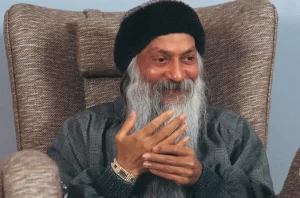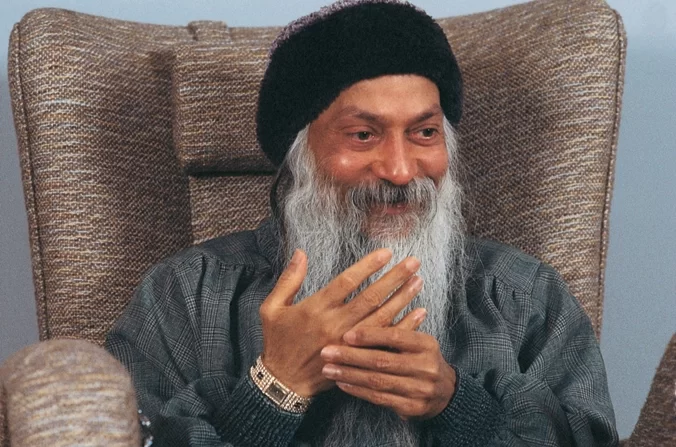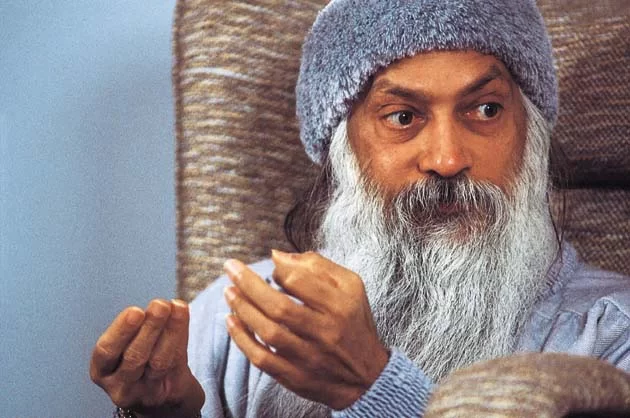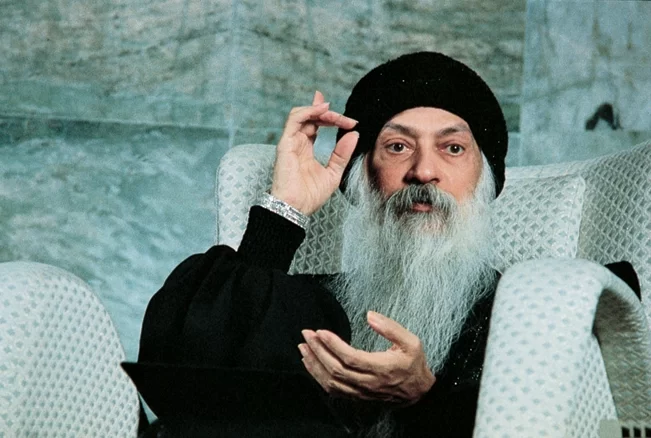Krishna Janmashtmi
Janmashtmi is a significant date in the Hindu calendar. It celebrates the birth of Krishna, the eighth avatar of Vishnu. Dance and drama enactments of the life of Krishna (raas leela), ritual fasting (upavaas), a night vigil (ratri jagaran) and a mega festival (mahotsava) on the succeeding day are key elements of the Janmashtami celebrations.
The Hindu scriptures term the life of Krishna as ‘Krishna Leela’ – the play of Krishna. The choice of phrase is tremendously significant. Osho says Krishna is the perfect man if fun is the sign of a perfect man. In India, we don’t term the life of Krishna as character (charitra), we call it Krishna’s Leela, his play. It is absolutely purposeless just like a small child. A child’s actions don’t have any meaning or goal. His efforts chasing butterflies won’t lead him anywhere, because he is going nowhere. He is just playing. When man becomes really mature, he again becomes childlike. Then life becomes fun all over again. You will enjoy it, every bit of it, you will not be serious. A deep laughter will spread all over your life.
Osho says Leeladhar is one of the names of Krishna. He is the most playful god, the most non-serious; there is no comparison to him. He was totally into life, into all dimensions of life, and he enjoyed everything — from love to war, everything; there is no denial in him. He can be good, he can be bad; he can be truthful, he can be deceitful. He can sacrifice himself; he can cheat you. He is very spontaneous, without any ideals and without any ideology… just a man living from moment to moment, responding, not with any a priori idea. He has no idea of how things should be. He functions out of his totality, and whatsoever happens out of that totality is good. He has no definition of goodness other than that.
Osho Says….
QUESTIONER: WHAT ARE THE DISTINGUISHING VIRTUES OF KRISHNA THAT MAKE HIM RELEVANT TO OUR TIME? WHAT IS HIS SIGNIFICANCE FOR US? PLEASE EXPLAIN.
Krishna is utterly incomparable, he is so unique. Firstly, his uniqueness lies in the fact that although Krishna happened in the ancient past he belongs to the future, is really of the future. Man has yet to grow to that height where he can be a contemporary of Krishna’s. He is still beyond man’s understanding; he continues to puzzle and battle us. Only in some future time will we be able to understand him and appreciate his virtues. And there are good reasons for it.
The most important reason is that Krishna is the sole great man in our whole history who reached the absolute height and depth of religion, and yet he is not at all serious and sad, not in tears.
By and large, the chief characteristic of a religious person has been that he is somber, serious and sad-looking — like one vanquished in the battle of life, like a renegade from life. In the long line of such sages it is Krishna alone who comes dancing, singing and laughing.
Religions of the past were all life-denying and masochistic, extolling sorrow and suffering as great virtues. If you set aside Krishna’s vision of religion, then every religion of the past presented a sad and sorrowful face. A laughing religion, a religion that accepts life in its totality is yet to be born. And it is good that the old religions are dead, along with them, that the old God, the God of our old concepts is dead too. It is said of Jesus that he never laughed. It was perhaps his sad look and the picture of his physical form on the cross that became the focal point of at traction for people, most of whom are themselves unhappy and miserable. In a deep sense Mahavira and Buddha are against life too. They are in favor of some other life in some other world; they support a kind of liberation from this life.
Every religion, up to now, has divided life into two parts, and while they accept one part they deny the other, Krishna alone accepts the whole of life.
Acceptance of life in its totality has attained full fruition in Krishna. That is why India held him to be a perfect incarnation of God, while all other incarnations were assessed as imperfect and incomplete. Even Rama is described as an incomplete incarnation of God. But Krishna is the whole of God. And there is a reason for saying so. The reason is that Krishna has accepted and absorbed everything that life is.
Albert Schweitzer made a significant remark in criticism of the Indian religion. He said that the religion of this country is life negative. This remark is correct to a large extent, if Krishna is left out. But it is utterly wrong in the context of Krishna. If Schweitzer had tried to understand Krishna he would never have said so.
But it was unfortunate that we did not allow Krishna to influence our life in a broad way. He remains a lonely dancing island in the vast ocean of sorrow and misery that is our life. Or, we can say he is a small oasis of joyous dancing and celebration in the huge desert of sadness and negativity, of suppression and condemnation that we really are. Krishna could not influence the whole spectrum of our life, and for this we are alone to blame. Krishna is not in the least responsible for it.
We were not that worthy, that deserving, to have him, to imbibe him, to absorb him.
Up to now, man’s mind has thought of and looked at life in fragments — and thought dialectically. The religious man denies the body and accepts the soul. And what is worse, he creates a conflict, a dichotomy between the body and spirit. He denies this world, he accepts the other world, and thus creates a state of hostility between the two. Naturally our life is going to be sad and miserable if we deny the body, because all our life’s juice — its health and vitality, its sensitivities and beauty, all its music — has its source in the body. So a religion that denies and denounces the body is bound to be anemic and ill, it has to be lackluster. Such a religion is going to be as pale and lifeless as a dry leaf fallen from a tree. And the people who follow such a religion, who allow themselves to be influenced and conditioned by it, will be as anemic and prone to death as these leaves are.
Krishna alone accepts the body in its totality. And he accepts it not in any selected dimension but in all its dimensions. Apart from Krishna, Zarathustra is another. About him it is said he was born laughing. Every child enters this world crying. Only one child in all of history laughed at the time of his birth, and that was Zarathustra. And this is an index — an index of the fact that a happy and laughing humanity is yet to be born. And only a joyful and laughing humanity can accept Krishna. Krishna has a great future.
Source:
This is an excerpt from the transcript of a public discourse by Osho in Buddha Hall, Shree Rajneesh Ashram, Pune.
Discourse Series: Krishna: The Man and His Philosophy
Chapter #1
Question 1
Chapter title: The Future Belongs to Krishna
20 July 1970 pm in C.C.I. Chambers
References:
Osho has spoken on ‘Krishna, Jesus, Buddha, Shiva, Lao Tzu and many other enlightened Masters’ in many of His discourses. More on them can be referred to in the following books/discourse titles:
- Vigyan Bhairav Tantra
- The Dhammapada: The Way of the Buddha
- Tao: The Three Treasures
- Zarathustra: The Laughing Prophet
- The Mustard Seed: My Most Loved Gospel on Jesus
- The Path of Love
- Bodhidharma: The Greatest Zen Master
- When the Shoe Fits
- Hyakujo: The Everest of Zen, with Basho’s Haikus
- Yoga: The Alpha and the Omega
- Sermons in Stones
- The Book of Wisdom
- The Divine Melody











